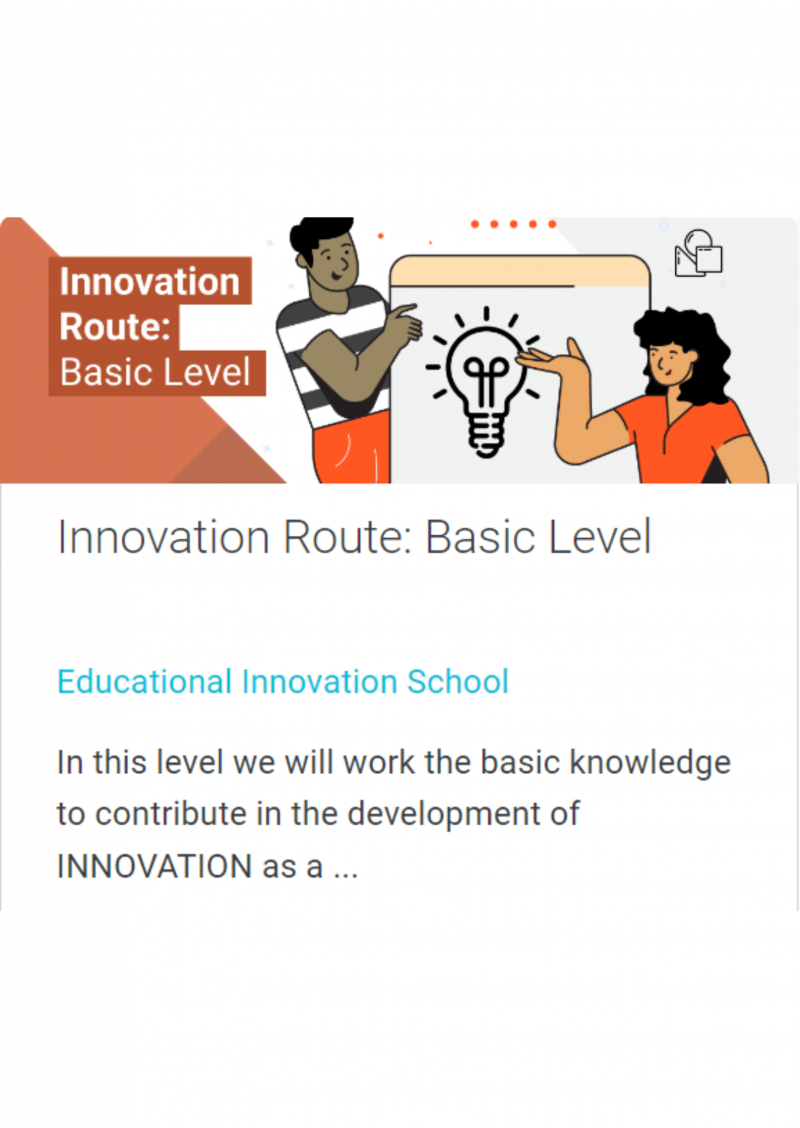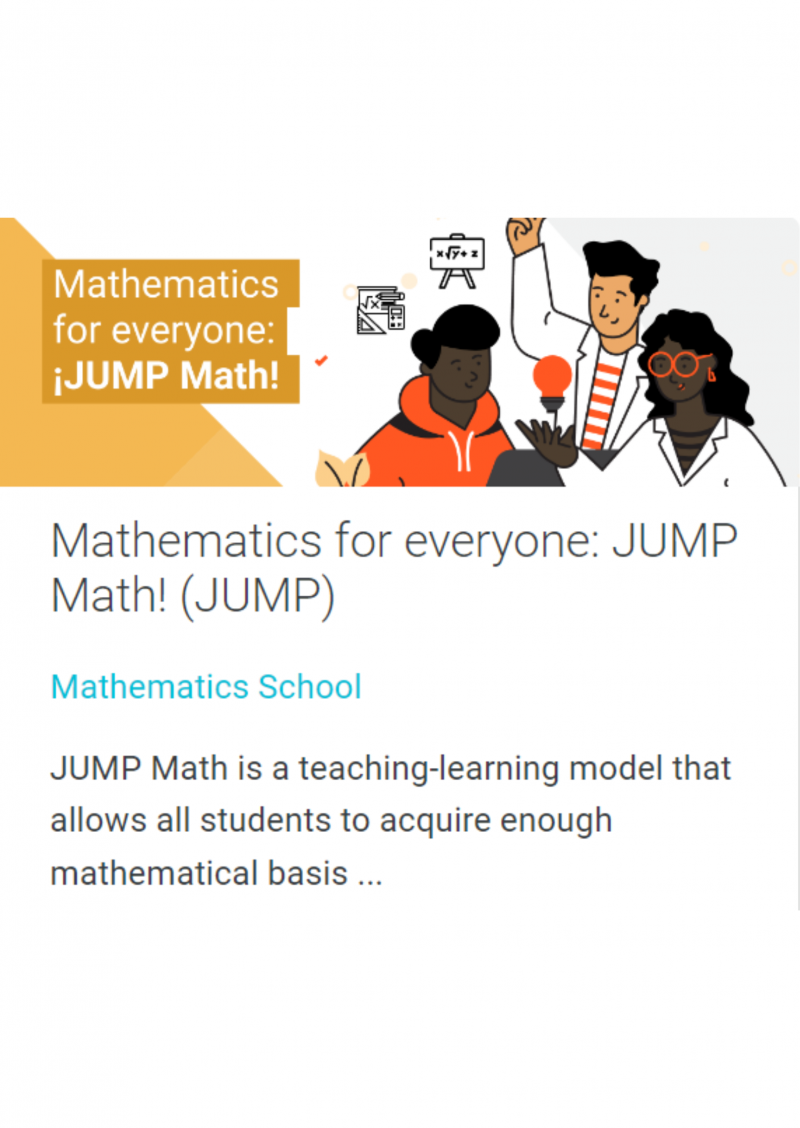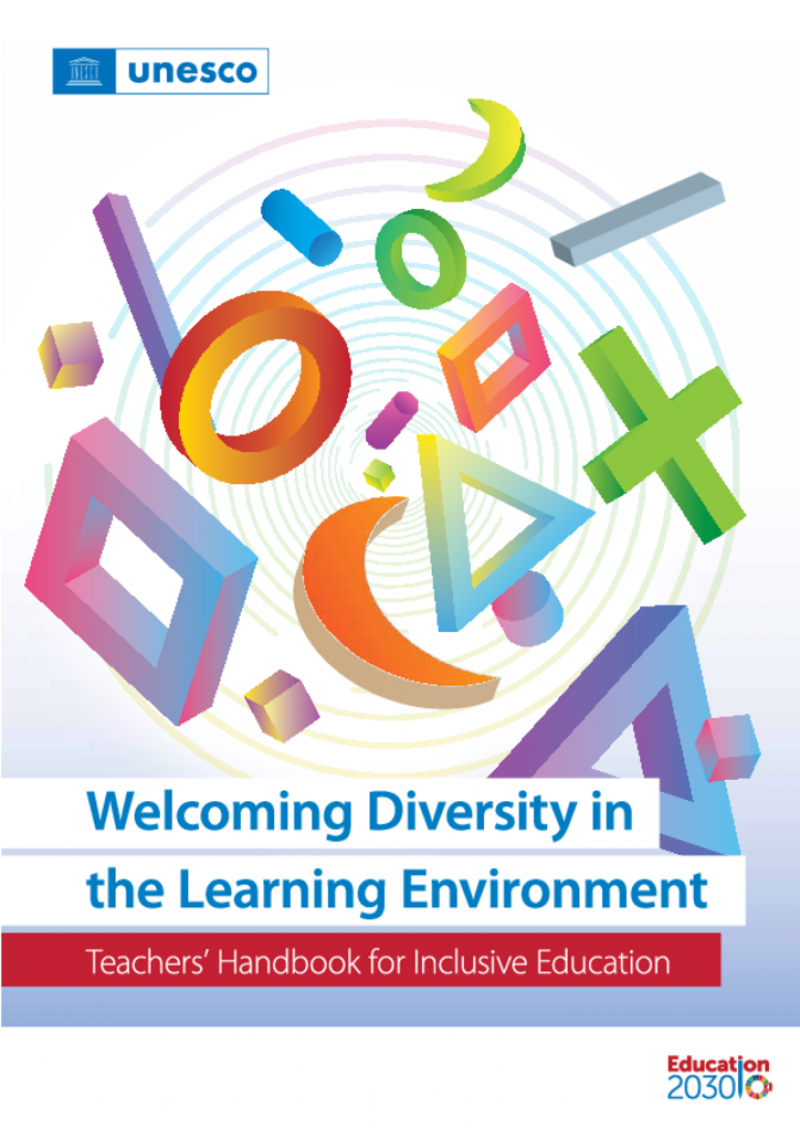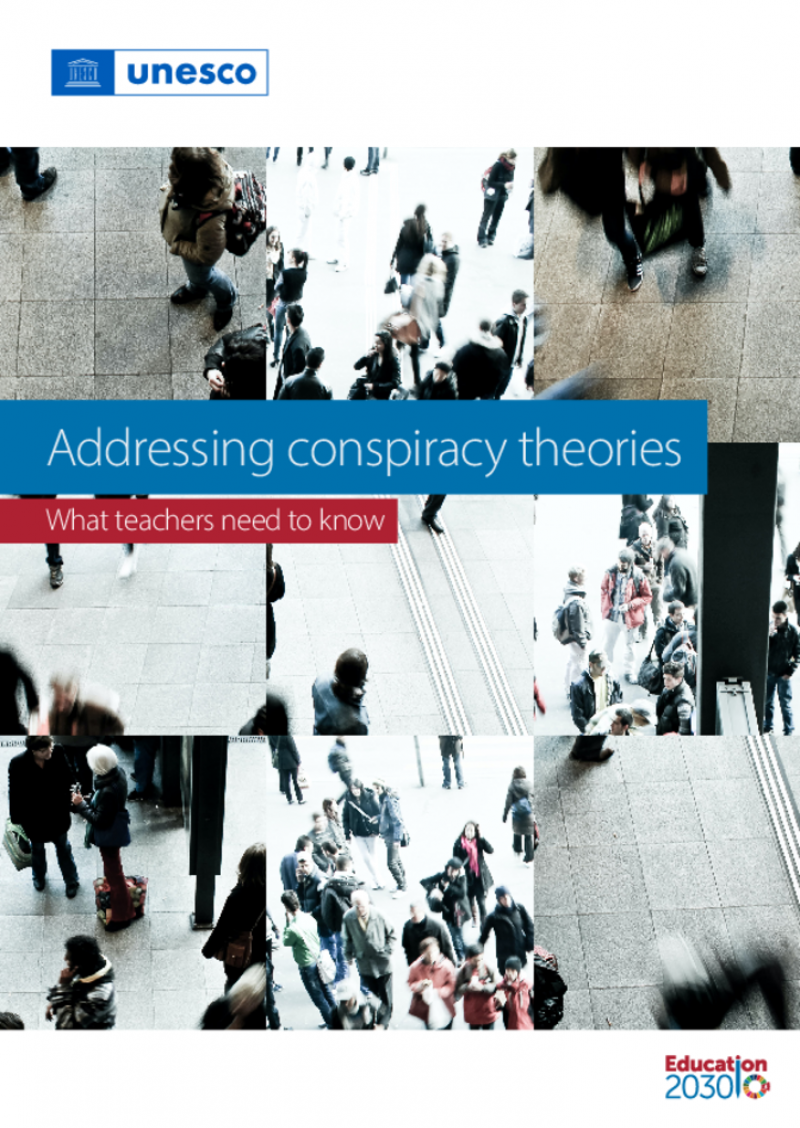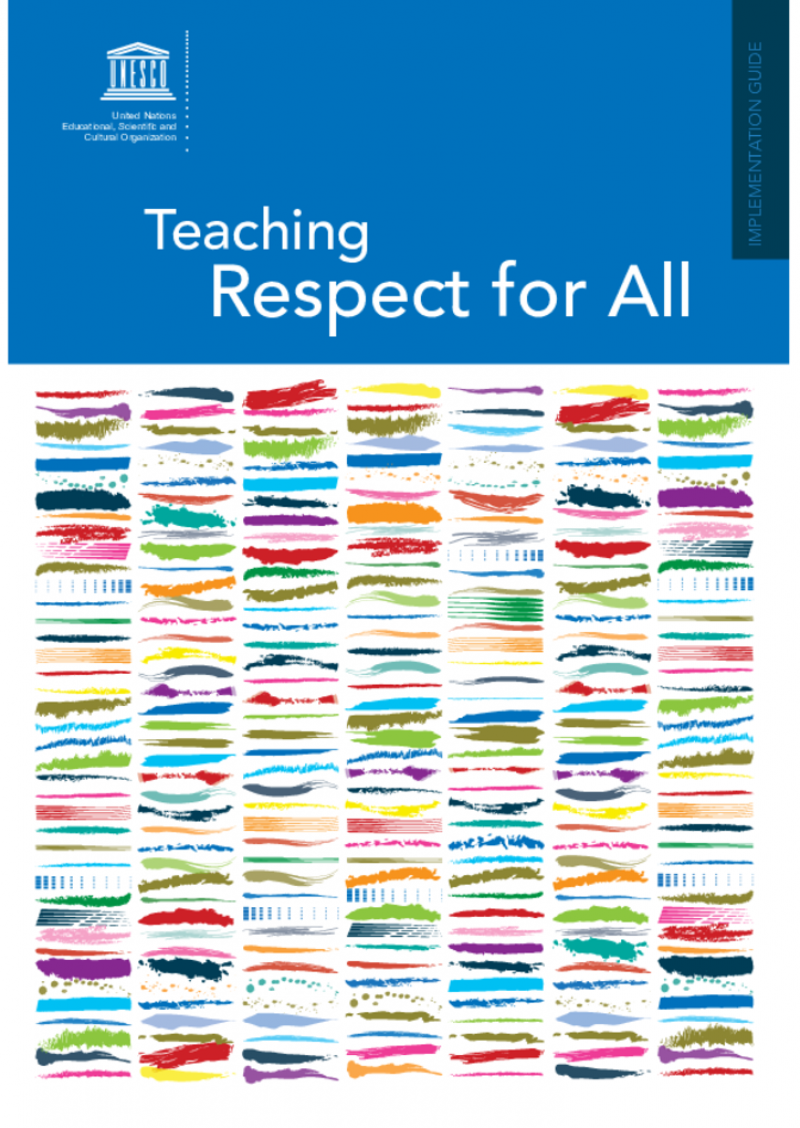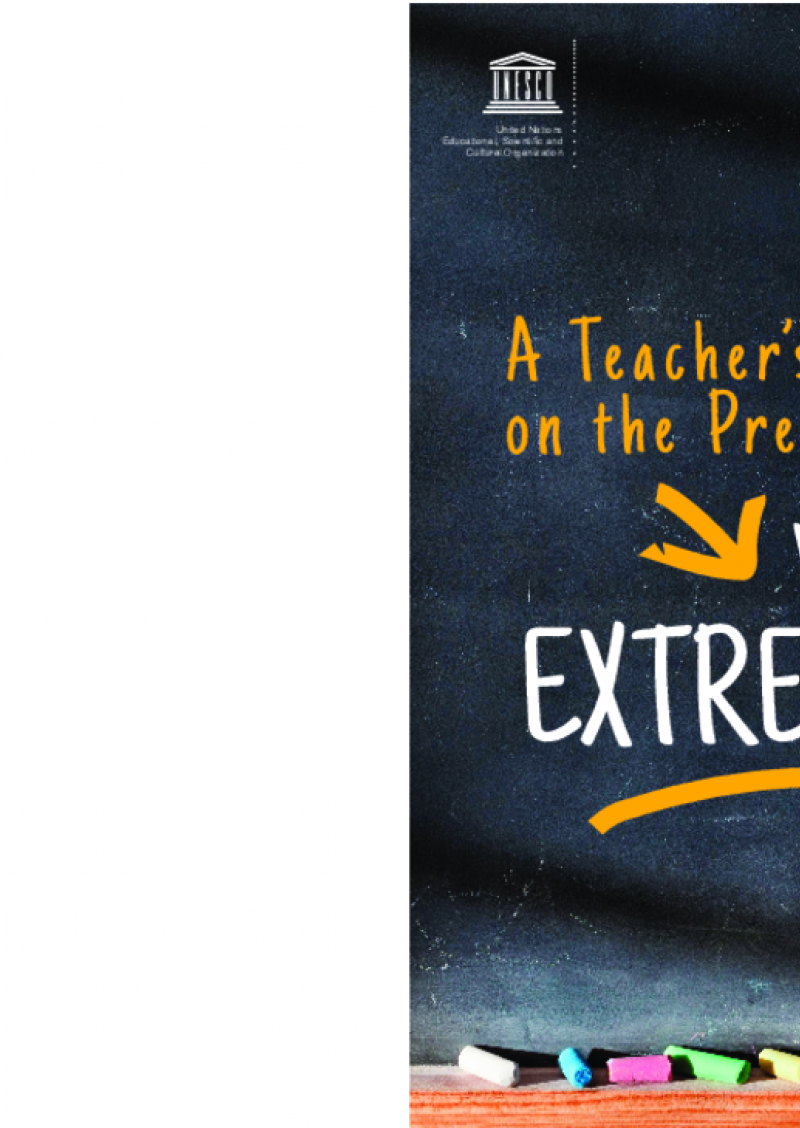مركز موارد المعلمين
عرض 41 - 60 من 75
Innovation route: Basic level
The aim of this teacher professional development proposal is to reflect on the importance of innovation and creativity in the classroom and to lay the foundations for the development of practices aimed at fostering it. In this level, innovation will be promoted as a primary competence for the implementation of a quality teaching-learning model.
In order to access the course it is required to sign up (for free) in ProFuturo's platform.
Level Up – Learning together... Let’s practice!
This training offers a series of innovative teaching practice tools and seeks to encourage collaboration between teachers.
In order to access the course it is required to sign up (for free) in ProFuturo's platform.
Mathematics for everyone: JUMP Math!
The aim of this training is to improve the teaching capabilities of primary school teachers in the area of mathematics, inspired by the philosophy and methodology of JUMP Math: a teaching-learning model that allows all students to acquire a mathematical basis sufficient to face life and professional challenges with confidence.
In order to access the course it is required to sign up (for free) in ProFuturo's platform.
Coordinated action to transform education. What's in it for teacher representatives?
This briefs presents what teacher representatives gain through coordinated action. The involvement of teacher representative bodies in broader policy dialogue takes place through multi-stakeholder coordination mechanisms, including local education groups (or the equivalent). Here, they can bring the attention of decision makers and other partners to issues and practices for ensuring coherence in the implementation of education policy, including investments needed in teacher preparation, professional development, raising teaching standards and improving teacher well-being.
Welcoming diversity in the learning environment: teachers' handbook for inclusive education
This teachers' handbook is intended to serve as a practical resource to help teachers and teacher educators to gain understanding of the multiple issues of inclusion in their day-to-day work and acquire competencies that facilitate inclusive pedagogy. The handbook is comprised of nine modules – each of which presents the conceptual discussion of key topics related to inclusion and diversity and features some promising case studies, instruments and approaches. It also provides a framework for ensuring learning continuity in the wake of crises and emergencies such as the COVID-19 pandemic, and deals with a range of topics aimed at building the capacities of teachers and teacher educators for recovery and resilience in education systems in the COVID-19 context.
كيف تصمم درساً إلكترونياً في 24 ساعة
يتعرف التصميم التعليمي للتعليم الذكي
يحدد المشهد العام للتصميم التعليمي في التعليم الذكي
يفهم الخطوات الخمسة لتخطيط الدرس في التعليم الذكي
يشرح المتطلبات اللازمة لتصميم جلسة في التعليم الذكي
يصمم جلسة في التعليم الذكي باستخدام جوجل كلاسرووم Google Classroom
كيف تُصبح معلماً عن بُعد في 24ساعة
يتعرف تكنولوجيا التعليم الإلكتروني.
يحدد المكونات الرئيسية للتعليم الإلكتروني.
يحدد أدوات إدارة العملية التعليمية في التعلم الإلكتروني
يستخدم أدوات العملية التعليمية: موودل كلاود
Social and emotional learning for schools
This is a dual certifying course that combines social and emotional learning (SEL) for classrooms and SEL for teachers. The objective of the certification is to enhance personal well-being and build the professional capacity of teachers for SEL.
Online Learning Design for Educators Specialization
Specialization offering three courses for educators seeking to improve and expand their repertoire of online teaching skills related to the design, development and delivery of effective and engaging online courses and lessons for school age and adult learners. It includes three courses: "Online education: The foundations of online teaching", "Create video, audio and infographics for online learning", "Online teaching: Using Zoom to connect with learners". It is possible to audit the courses for free.
Addressing anti-semitism in schools: training curriculum for secondary education teachers
This publication is part of a four-volume set of training curricula to address anti-Semitism in schools. This volume focuses on the training curriculum for secondary education teachers. Each volume in this set aims to assist trainers in the field of education globally to work effectively towards strengthening the capacity of teachers to prevent and respond to antiSemitism, this specific and highly dangerous type of prejudice directed at Jewish people. In this sense, the curriculum addresses anti-Semitic prejudice and perceptions of Jews, phenomena which often also fulfil a social and political function in societies around the world; it is not material aimed at preparing teachers for intercultural dialogue.
Addressing anti-semitism in schools: training curriculum for vocational education teachers
This publication is part of a four-volume set of training curricula to address anti-Semitism in schools. This volume focuses on the training curriculum for vocational education teachers. Each volume in this set aims to assist trainers in the field of education globally to work effectively towards strengthening the capacity of teachers to prevent and respond to antiSemitism, this specific and highly dangerous type of prejudice directed at Jewish people. In this sense, the curriculum addresses anti-Semitic prejudice and perceptions of Jews, phenomena which often also fulfil a social and political function in societies around the world; it is not material aimed at preparing teachers for intercultural dialogue.
Addressing anti-semitism in schools: training curriculum for school directors
This publication is part of a four-volume set of training curricula to address anti-Semitism in schools. This volume focuses on the training curriculum for school directors. Each volume in this set aims to assist trainers in the field of education globally to work effectively towards strengthening the capacity of teachers to prevent and respond to antiSemitism, this specific and highly dangerous type of prejudice directed at Jewish people. In this sense, the curriculum addresses anti-Semitic prejudice and perceptions of Jews, phenomena which often also fulfil a social and political function in societies around the world; it is not material aimed at preparing teachers for intercultural dialogue.
Addressing anti-semitism in schools: training curriculum for primary education teachers
This publication is part of a four-volume set of training curricula to address anti-Semitism in schools. This volume focuses on the training curriculum for primary education teachers. Each volume in this set aims to assist trainers in the field of education globally to work effectively towards strengthening the capacity of teachers to prevent and respond to antiSemitism, this specific and highly dangerous type of prejudice directed at Jewish people. In this sense, the curriculum addresses anti-Semitic prejudice and perceptions of Jews, phenomena which often also fulfil a social and political function in societies around the world; it is not material aimed at preparing teachers for intercultural dialogue.
Addressing conspiracy theories: what teachers need to know
This document intends to support educators limit the dissemination of conspiracy theories by responding to them when they are shared among learners or within the wider school community.
Teaching respect for all: implementation guide
This Teaching Respect for All Implementation Guide comprises a set of policy guidelines, questions for self-reflection, ideas and examples of learning activities to integrate Teaching Respect for All into all aspects of upper primary and lower secondary education, in an effort to counteract discrimination in and through education. It mainly targets policy makers, administrators/headteachers and formal and informal educators.
Part 2 targets headteachers and education NGO managers, suggesting key areas of intervention with a list of possible actions/activities and Part 3 targets teachers and describes methods of dealing with difficult topics such as racism and discrimination with learners as well as provides suggestions for possible entry points and topics to link the issues of respect for all with particular teaching subjects.
Youth empowerment for peace and resilience building and prevention of violent extremism in Sahel and surrounding countries: a guide for teachers
This guide is designed to build the capacity of secondary school teachers and teacher educators to integrate a peace and resilience building approach in education for the prevention of violent extremism. It builds on the Transformative Pedagogy for Peace-building guide and it was contextualized to the context the Sahel and surrounding countries.
The guide redefines the role of teachers, inviting them to make a paradigm shift in adopting a transformative pedagogy that allows learners to actively participate in their own learning. Transformative pedagogy builds on active pedagogy and the competencies-based approach. The guide concludes with engaging learning activities to support experiential learning.
تمكين الطلاب لمجتمعات عادلة: دليل موجه إلى معلمي المدارس الثانوية
يهدف هذا الدليل إلى تزويد المعلمين بمجموعة مختارة من الموارد التعليمية ذات الصلة، المتاحة داخل الفصل الدراسي وخارجه (ملخصات الأنشطة القصيرة والدروس والوحدات التعليمية) التي تهدف إلى غرس مبادئ سيادة القانون بين تلاميذ المدارس الثانوية
يمكن استخدام هذا الدليل أيضًا من قبل المهنيين العاملين في قطاع التعليم غير الرسمي أو العاملين مع الشباب، على سبيل المثال، في المؤسسات الرياضية ومنظمات المجتمع المحلي والعمل الاجتماعي والعاملين في القضاء.
الدليل لمعلمي المدارس الابتدائية متاح هنا.
تمكين الطلاب لمجتمعات عادلة: دليل موجه إلى معلمي المدارس الابتدائية
يهدف هذا الدليل إلى تزويد المعلمين بمجموعة مختارة من الموارد التعليمية ذات الصلة، المتاحة داخل الفصل الدراسي وخارجه (ملخصات الأنشطة القصيرة والدروس والوحدات التعليمية) التي تهدف إلى غرس مبادئ سيادة القانون بين تلاميذ المدارس الابتدائي.
يمكن استخدام هذا الدليل أيضًا من قبل المهنيين العاملين في قطاع التعليم غير الرسمي أو العاملين مع الشباب، على سبيل المثال، في المؤسسات الرياضية ومنظمات المجتمع المحلي والعمل الاجتماعي والعاملين في القضاء.
الدليل لمعلمي المدارس الثانوية متاح هنا.
A teacher's guide on the prevention of violent extremism
This is UNESCO’s first teacher’s guide on the prevention of violent extremism through education. It was developed in order to ensure its relevance in different geographical and socio-cultural contexts. Therefore, it can be used as it is or further contextualized, adapted and translated in order to respond to the specific needs of learners.
The guide seeks to:
- provides practical advice on when and how to discuss the issue of
violent extremism and radicalization with learners;
- help teachers create a classroom climate that is inclusive and conducive
to respectful dialogue, open discussion and critical thinking.
Dear Kitty: worksheets for the film Where is Anne Frank?
These worksheets are to be used with the teacher's guide "Dear Kitty: teacher's guide for the film Where is Anne Frank?".
